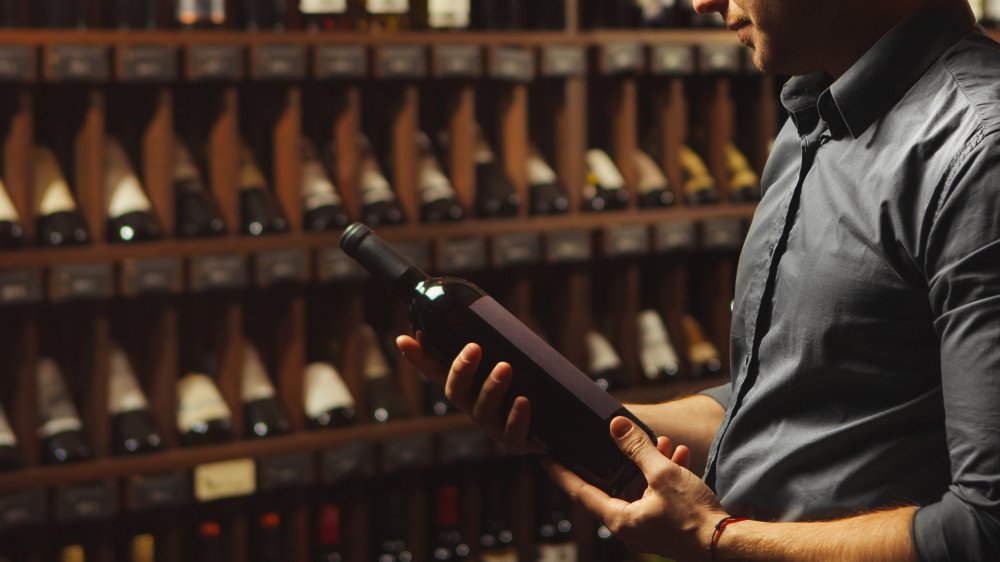The Pandemic Might Be Getting A Lot Worse For Wine Lovers
The COVID-19 pandemic has made many things in life more difficult. Our work, school, and social lives have all changed dramatically. But, simple pleasures do still exist. Better-than-ever TV, home-cooked meals, and wine. Unfortunately, according to Business Insider, imported bottles of wine may now be unaffordable for some, and could ultimately become a thing of the past entirely. The problem is that an existing 25 percent wine tariff will be allowed to continue, and, along with the COVID-19 pandemic, this is making certain wines (those from France, Germany, Spain, and the U.K.) prohibitively expensive for American consumers, retailers, and restaurants.
This tariff has been in place since 2019 when, somehow, wine got wrapped up in an ongoing trade dispute between the U.S. and Europe over aircraft manufacturing subsidies. Essentially, as Food & Wine describes, wine is being used as an arbitrary "bargaining chip" to forward trade negotiations. The 25 percent tariff had already caused a significant increase in prices for certain bottles, even before the pandemic rolled around. Now, with so many consumers and businesses struggling with the personal financial impact COVID-19 has had, it's likely many folks will not be able to shell out extra cash for their preferred bottles of imported wine. If not enough consumers can afford to pay the higher price, restaurants and retailers may quit buying imported wines altogether. As a result, wine lovers across the country will lose access to some pretty special and delicious imported vino.
Wine retailers and restaurants have a tough call to make
Ben Aneff, managing partner of Tribeca Wine Merchants and the current president of the U.S. Wine Trade Alliance, told Business Insider, "There's a reality that most of the businesses that import and distribute these wines, they simply do not have the cash flow to deal with these tariffs long-term." He added, "There's going to come a point where they simply cannot afford to bring them in."
So, is there hope? When the 25 percent tariff was enacted in October of 2019, whiskey was also included in the list of taxed items. Food & Wine reported that prior to the tariff taking effect, some savvy single malt Scotch producers switched to shipping their product by air, rather than by sea, circumventing the tariff altogether. Is it possible the wine industry could find a similarly creative solution? Let's all ponder that over a glass of Bordeaux, shall we?

